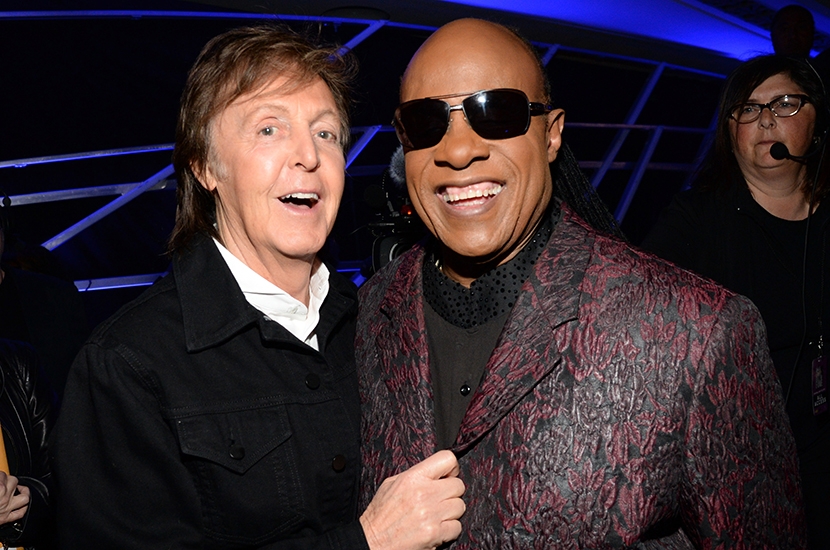Before plunging into a vexed question, it’s sometimes wise to point out that one is aware how vexed it is. I haven’t been living in a cave these past few years. Even as I speak, doctoral theses are doubtless being written on ‘identity politics’: whole books have been devoted to what has become very much the topic of the day, and (without always being precise about what we mean by the term) we in the world of politics and the political media sometimes seem to talk of little else.
But during a recording for my BBC Radio 4 Great Lives programme this week, it came home to me what these ideas have displaced. Out have gone the beliefs and ideals that meant so much to me as a boy. The dream for which my family fought in what was then Rhodesia is now not so much unfashionable as forgotten. The ‘dream’, I mean, of multiracialism; a growing irrelevance of skin colour or ethnic origins; the gradual convergence of the world’s peoples; the building on our planet of a shared culture, shared values, a shared membership of our human race; and a slow but steady dissolving of our differences.
I mean, in short, the warm, fuzzy but powerful feeling we had when I was young, and we listened to Three Dog Night singing ‘The ink is black, the page is white / Together we learn to read and write…’ or Stevie Wonder and Paul McCartney singing ‘We all know that people are the same wherever you go…’: ‘Ebony and ivory live together in perfect harmony / Side by side on my piano keyboard, oh Lord, why don’t we?’

I remember the New Seekers’ recording of ‘I’d like to teach the world to sing / In perfect harmony…’ Or Oscar Hammerstein II’s lyric in South Pacific: ‘You’ve got to be taught to be afraid / Of people whose eyes are oddly made / And people whose skin is a different shade / You’ve got to be carefully taught.’ These were potent sentiments and for decades they seemed to sweep the West, and describe the world’s future. They were what ‘modern’ people in Europe and America believed. They in turn were displacing what was at best white hegemonism and at worst white racism.
These were not Black Power songs, and their themes were not Black Power ideas. You could call it People Power but, to be honest, it was mostly written by and sung by (or to) white people. Its explicit message was ‘Come together’ and its implicit belief was that all mankind could unite behind broadly liberal, democratic values, humane values, tolerant values, ‘western’ values: behind what humans share rather than what divides us. Unstated was the assumption that western liberal values were what humans share, if only we could all get in touch with the Inner Man.
The message was that we humans are all the same. It was a bit happy-clappy, but how I loved this ideal
I don’t, of course, suggest the dream minded that Italian Americans had their own little subculture, or that Irish people the world over celebrated St Patrick’s Day, or that black people were especially partial to gospel or jazz, or that Indian ladies wore saris and
had jewels in their noses: in that sense of ‘diversity’, the dream liked diversity. But essentially the message was that in the important things we humans are all the same. It was a bit happy-clappy, but how I loved this ideal. To be honest I still do.
Which brings me to that Great Lives recording. My guest was the likeable and accomplished writer and broadcaster Lindsay Johns. The great life he had chosen was that of Frantz Fanon, the 20th-century black French writer, psychologist and revolutionary from the French Caribbean island of Martinique. Mr Johns did a great job of bringing him and his work to life, and this column is no place to recapitulate. Suffice it to say that Fanon (in fact of mixed race though he looked black) suffered many humiliations at the hands of white French racism, fought for France and the Free French, fought in Algeria, finally joined the Algerian Arab revolutionaries, and in print railed with passion, spirit and bitter personal insight against white racism.
But his work was more than a cry of pain. Of growing up in the French Caribbean, he wrote: ‘The black schoolboy who is constantly asked to recite “our Ancestors the Gauls” identifies himself with the explorer, the civilising coloniser, the white man who brings truth to the savages, a lily-white truth. The identification process means that the black child subjectively adopts a white man’s attitude.’ The response (Fanon came to believe) was to embrace a different, black identity — and to do so aggressively. In his book Black Skin, White Masks, he wrote: ‘Violence is a cleansing force. It frees the native from his inferiority complex and from his despair and inaction; it makes him fearless and restores his self‑respect.’
Here, I think, you see the seeds of the ideas driving today’s identity politics. The message is far from ‘come together’ and, while as a psychologist he’s surely right that righteous anger can be a self-affirming force, as a political writer he flirts with the idea of apartness as a human good.
This is where I grow uneasy. I don’t disregard Fanon’s insight, and Lindsay Johns acknowledged conflict within Fanon’s own breast. He quoted to me this, from Fanon: ‘Yes to life. Yes to love. Yes to generosity. But man is also a negation. No to man’s contempt. No to the indignity of man. To the exploitation of man. To the massacre of what is most human in man: freedom.’
This is the Fanon I can love, and the man himself was bighearted and brave: a force for kindness and justice. But the flames he helped kindle have in our own day begun to consume something that was precious: togetherness. There is a word for separateness in the Afrikaans language, and it is apartheid. My family hated and fought against apartheid in southern Africa when it really meant baaskap: white supremacy — separate and unequal. The new identity politics means separate but equal. And I still hate it.







Comments